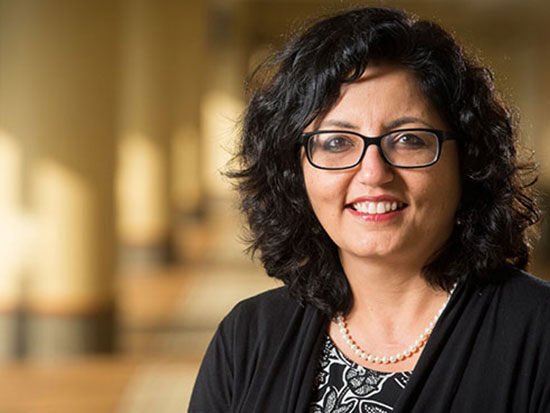Written by: Challis Wells
 Smita Bhatia, M.D., MPH, director of the University of Alabama at Birmingham’s School of Medicine Institute for Cancer Outcomes and Survivorship and vice chair for Outcomes Research in the Department of Pediatric Oncology, has received the Outstanding Investigator Award from the National Cancer Institute. The highly competitive award will enable Bhatia and her team to continue making promising advancements in pediatric oncology.
Smita Bhatia, M.D., MPH, director of the University of Alabama at Birmingham’s School of Medicine Institute for Cancer Outcomes and Survivorship and vice chair for Outcomes Research in the Department of Pediatric Oncology, has received the Outstanding Investigator Award from the National Cancer Institute. The highly competitive award will enable Bhatia and her team to continue making promising advancements in pediatric oncology.
Additionally, Bhatia received a seven-year, $6.2 million grant to continue her research into how personalized treatment of childhood cancer can further minimize toxicity.
The award provides funding to investigators with exceptional records of productivity in cancer research to continue or embark upon new projects of unusual potential in cancer research. Award recipients are cancer researchers who have served as principal investigators on an NCI grant for the last five years and have demonstrated outstanding productivity.
“This award provides me with the necessary resources to undertake a high-risk but potentially high-reward project,” Bhatia said. “The ultimate goal is the ability to minimize long-term toxicity while optimizing cures for children with cancer. I am very excited to embark on this project and am very grateful to the NCI for this award.”
If Bhatia’s research is successful, her findings would provide evidence for a personalized therapeutic approach to childhood cancer. The two leading causes of premature mortality in childhood cancer survivors are radiation-related subsequent neoplasms, or SNs, and anthracycline-related cardiac dysfunction, or CD. Bhatia seeks to develop a risk prediction model for radiation-related SN and anthracycline-related CD in childhood cancer survivors, replicate the optimized model in an independent cohort of childhood cancer survivors, apply the model to newly diagnosed children with cancer to predict the risk of incident SN/CD, and determine the functional relevance of the genetic signatures. Findings from this application will help reduce the burden of morbidity in this population.